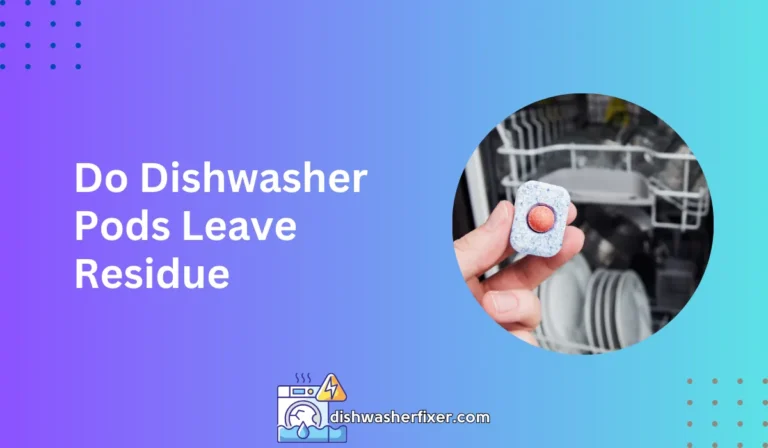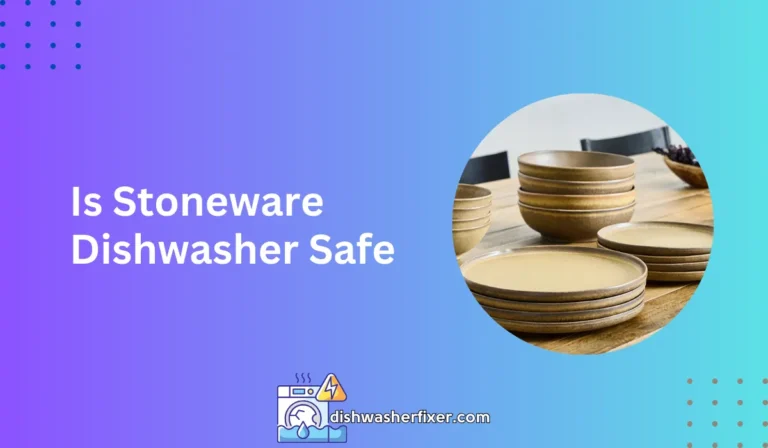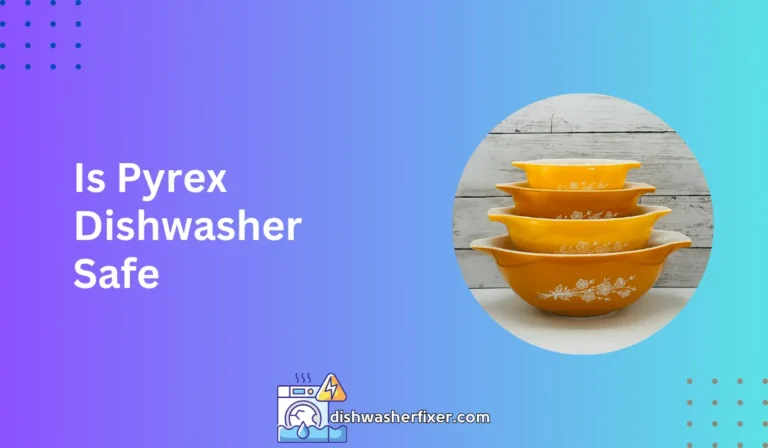Why Is My Dishwasher Not Drying? Top Fixes Revealed!
Your dishwasher may not be drying due to a malfunctioning heating element, a clogged vent, or the use of incorrect rinse aid. Ensure the heating element works, the vent is clear, and that you’re using the right rinse aid for your model.
Common Causes of Dishwasher Drying Problems
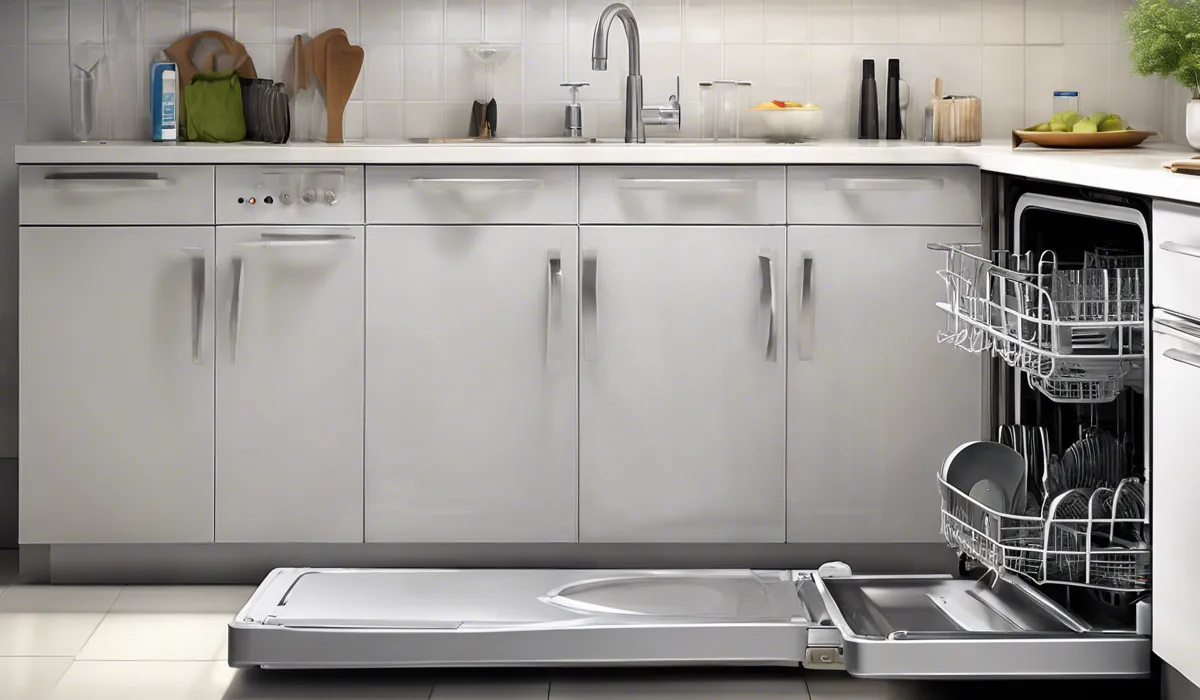
Vent Issues and Fan Malfunctions
One frequent reason your dishwasher might not be drying dishes is due to vent problems. The vent helps let out the hot, moist air. If it’s not opening correctly, the steam won’t escape, leaving your dishes wet.
Additionally, if the fan that helps circulate air within the dishwasher is malfunctioning, it won’t effectively remove the moist air from the unit, hindering the drying process.
Heating Element Failures
The heating element in your dishwasher is crucial for drying dishes. If it’s not working, your dishes will come out wet. This could be due to a failure of the element itself or an issue with the electrical connection that powers it.
Checking the heating element for visible damage or using a multimeter to test for continuity can determine if it is the cause of the drying issue.
Rinse Aid Dispenser Issues
Rinse aid plays a vital role in the drying process by reducing the surface tension of water, which helps water droplets slide off dishware easily.
If the dispenser isn’t releasing rinse aid, water will cling to your dishes and they won’t dry properly. Ensure that the dispenser is filled and functioning correctly for optimal drying.
Malfunctioning Thermostat
The thermostat in your dishwasher regulates the temperature during the drying cycle. If it’s malfunctioning and not reaching the correct temperature, your dishes won’t dry.
This could be due to a faulty sensor or electrical issue. A technician can help diagnose and resolve this type of problem.
Faulty Electronic Control Board
The electronic control board is the brain of your dishwasher. If it’s not functioning properly, it could fail to send the signal to heat up or run the drying cycle.
This type of issue is complex and typically requires professional assessment.
Clogged Air Gap or Drain Hose
A clogged air gap or drain hose can cause water to remain in the bottom of the dishwasher, increasing humidity and preventing dishes from drying.
Regularly inspecting and cleaning these components can help prevent clogs.
Maintenance Tips to Improve Dishwasher Drying
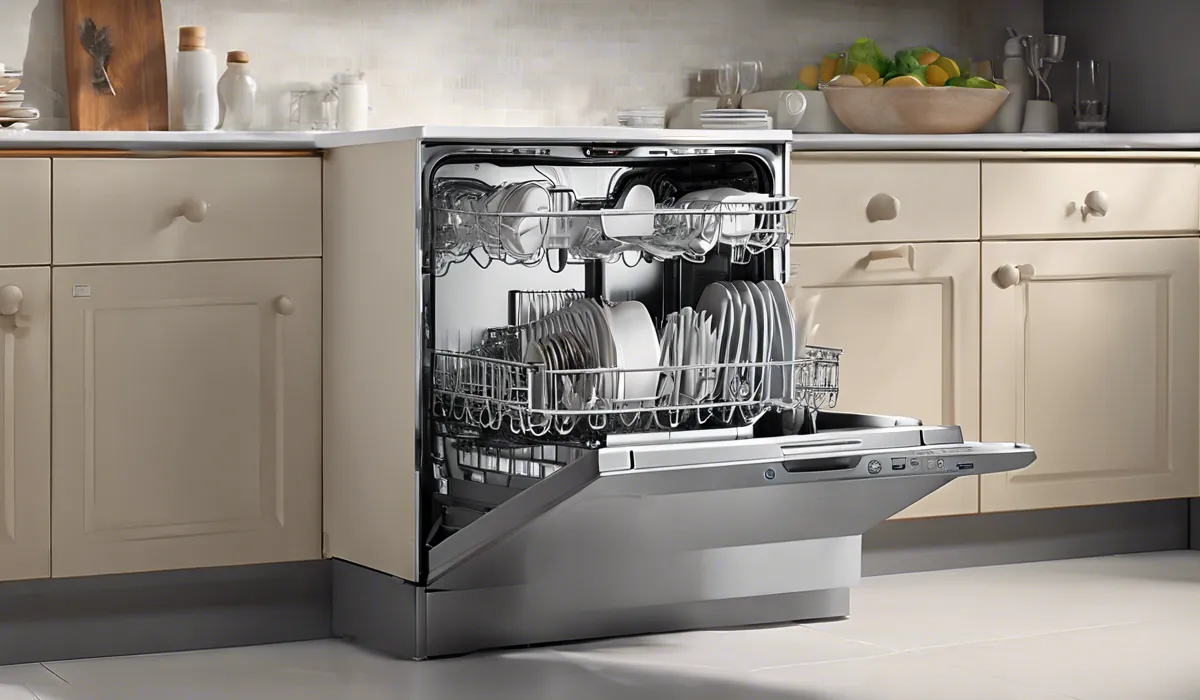
Regular Cleaning and Debris Removal
Keeping your dishwasher clean is essential for optimal performance. Regularly removing debris from the bottom and wiping down the interior can prevent blockages that may affect drying.
Make a habit of checking for large food particles and cleaning the unit with a dishwasher-safe cleaner.
Ensuring Proper Loading Techniques
How you load your dishwasher impacts drying effectiveness. Make sure not to overcrowd it and to place items at an angle, which allows water to run off more easily. Also, avoid nesting bowls and cups, as this can trap water.
Using Rinse Aid and High-Quality Detergent
Use the right rinse aid for your model and a high-quality detergent. These products are designed to work together to leave your dishes clean and dry. They also help prevent spots and film from forming on your dishes.
Checking and Cleaning the Filters
Filters trap food particles and can become clogged over time. Regularly remove and clean these filters to ensure water can flow freely, which is essential for both washing and drying.
Regularly Inspecting and Cleaning the Spray Arms
Spray arms can become clogged with food particles or scale buildup. Check and clean them regularly to ensure they are spinning freely and distributing water evenly during the wash cycle, which will also help with drying.
Professional Repair vs. DIY Solutions
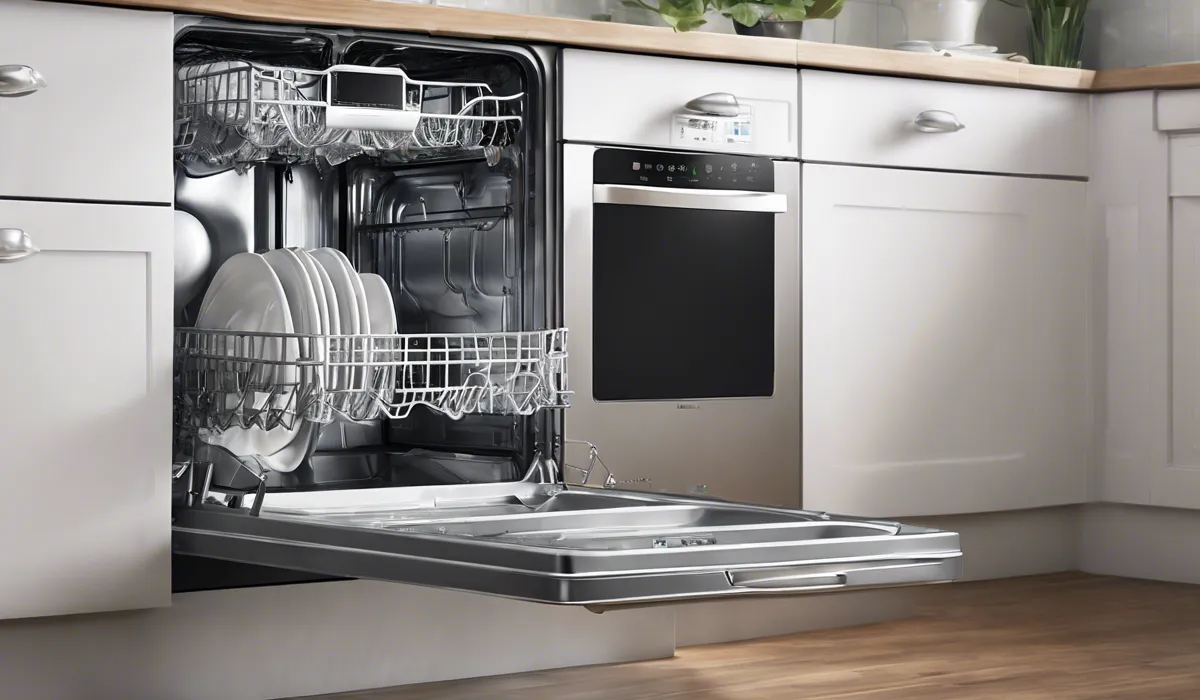
When to Call a Professional for Repairs
If you’ve tried the basic troubleshooting steps without success or you’re facing complex issues like electronic control board or thermostat failures, it’s time to call a professional. They have the expertise and tools to diagnose and fix the problem correctly.
Simple Fixes You Can Do Yourself
Many dishwasher drying problems can be resolved with simple fixes such as cleaning the filters, unclogging the air gap, or ensuring proper use of rinse aid.
Consult your dishwasher’s manual for guidance on how to perform these tasks safely and effectively.
Understanding Warranty and Service Options
Before attempting any repairs, check your dishwasher’s warranty. You might be entitled to free or discounted repairs.
Additionally, understanding service options can help you make informed decisions about whether to attempt a DIY fix or call in a professional.
The Costs and Benefits of Professional Servicing vs. DIY
Professional servicing can be more costly than DIY, but it often comes with guarantees and the peace of mind that the job is done correctly.
Weigh the costs and benefits of each option by considering the complexity of the issue, your skill level, and the potential for further damage with an incorrect DIY fix.
FAQs About Dishwasher Not Drying
Why isn’t my dishwasher drying the dishes properly?
Your dishwasher may not be drying properly due to issues like a faulty heating element, a clogged vent, or incorrect use of rinse aid.
How can I tell if the heating element in my dishwasher is malfunctioning?
To determine if the heating element is malfunctioning, check if it’s warm to the touch after a cycle, but be cautious to avoid burns. If it’s not warm, it might be defective and require replacement.
What should I do if the vent on my dishwasher is clogged?
If the dishwasher vent is clogged, clean it thoroughly to remove any blockages that could prevent steam from escaping, which is essential for the drying process.
How does the incorrect use of rinse aid affect my dishwasher’s drying ability?
Using the wrong type of rinse aid or incorrect amounts can lead to poor drying results, as rinse aid helps water droplets to evaporate quickly and evenly from dishes.
What type of rinse aid should I use for my dishwasher model?
Consult your dishwasher’s manual to determine the recommended type of rinse aid and follow the manufacturer’s instructions for the best drying performance.
Final Thoughts
Several issues can prevent your dishwasher from drying properly.
It’s essential to check if the heating element is functioning, verify that the vent isn’t clogged, and confirm you’re using the appropriate rinse aid for your machine.
Addressing these factors can help restore the drying efficiency of your dishwasher.

